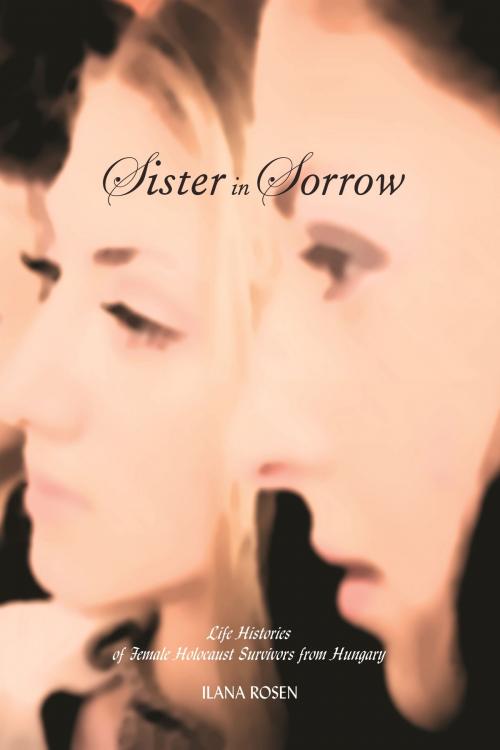Sister in Sorrow
Life Histories of Female Holocaust Survivors from Hungary
Nonfiction, History, Jewish, Holocaust, Social & Cultural Studies, Social Science, Gender Studies, Women&| Author: | Ilana Rosen | ISBN: | 9780814338889 |
| Publisher: | Wayne State University Press | Publication: | March 14, 2008 |
| Imprint: | Wayne State University Press | Language: | English |
| Author: | Ilana Rosen |
| ISBN: | 9780814338889 |
| Publisher: | Wayne State University Press |
| Publication: | March 14, 2008 |
| Imprint: | Wayne State University Press |
| Language: | English |
Sister in Sorrow offers a glimpse into the world of Hungarian Holocaust survivors through the stories of fifteen survivors, as told by thirteen women and two spouses presently living in Hungary and Israel. Analyzing the accounts as oral narratives, author Ilana Rosen uses contemporary folklore studies methodologies to explore the histories and the consciousness of the narrators as well as the difficulty for present-day audiences to fully grasp them. Rosen’s research demonstrates not only the extreme personal horrors these women experienced but also the ways they cope with their memories. In four sections, Rosen interprets the life histories according to two major contemporary leading literary approaches: psychoanalysis and phenomenology. This reading encompasses both the life spans of the survivors and specific episodes or personal narratives relating to the women’s identity and history. The psychoanalytic reading examines focal phases in the lives of the women, first in pre-war Europe, then in World War II and the Holocaust, and last as Holocaust survivors living in the shadow of loss and atrocity. The phenomenological examination traces the terms of perception and of the communication between the women and their different present-day non-survivor audiences. An appendix contains the complete life histories of the women, including their unique and affecting remembrances. Although Holocaust memory and narrative have figured at the center of academic, political, and moral debates in recent years, most works look at such stories from a social science perspective and attempt to extend the meaning of individual tales to larger communities. Although Rosen keeps the image of the general group—be it Jews, female Holocaust survivors, Israelis, or Hungarians—in mind throughout this volume, the focus of Sister in Sorrow is the ways the individual women experienced, told, and processed their harrowing experiences. Students of Holocaust studies and women’s studies will be grateful for the specific and personal approach of Sister in Sorrow.
Sister in Sorrow offers a glimpse into the world of Hungarian Holocaust survivors through the stories of fifteen survivors, as told by thirteen women and two spouses presently living in Hungary and Israel. Analyzing the accounts as oral narratives, author Ilana Rosen uses contemporary folklore studies methodologies to explore the histories and the consciousness of the narrators as well as the difficulty for present-day audiences to fully grasp them. Rosen’s research demonstrates not only the extreme personal horrors these women experienced but also the ways they cope with their memories. In four sections, Rosen interprets the life histories according to two major contemporary leading literary approaches: psychoanalysis and phenomenology. This reading encompasses both the life spans of the survivors and specific episodes or personal narratives relating to the women’s identity and history. The psychoanalytic reading examines focal phases in the lives of the women, first in pre-war Europe, then in World War II and the Holocaust, and last as Holocaust survivors living in the shadow of loss and atrocity. The phenomenological examination traces the terms of perception and of the communication between the women and their different present-day non-survivor audiences. An appendix contains the complete life histories of the women, including their unique and affecting remembrances. Although Holocaust memory and narrative have figured at the center of academic, political, and moral debates in recent years, most works look at such stories from a social science perspective and attempt to extend the meaning of individual tales to larger communities. Although Rosen keeps the image of the general group—be it Jews, female Holocaust survivors, Israelis, or Hungarians—in mind throughout this volume, the focus of Sister in Sorrow is the ways the individual women experienced, told, and processed their harrowing experiences. Students of Holocaust studies and women’s studies will be grateful for the specific and personal approach of Sister in Sorrow.















